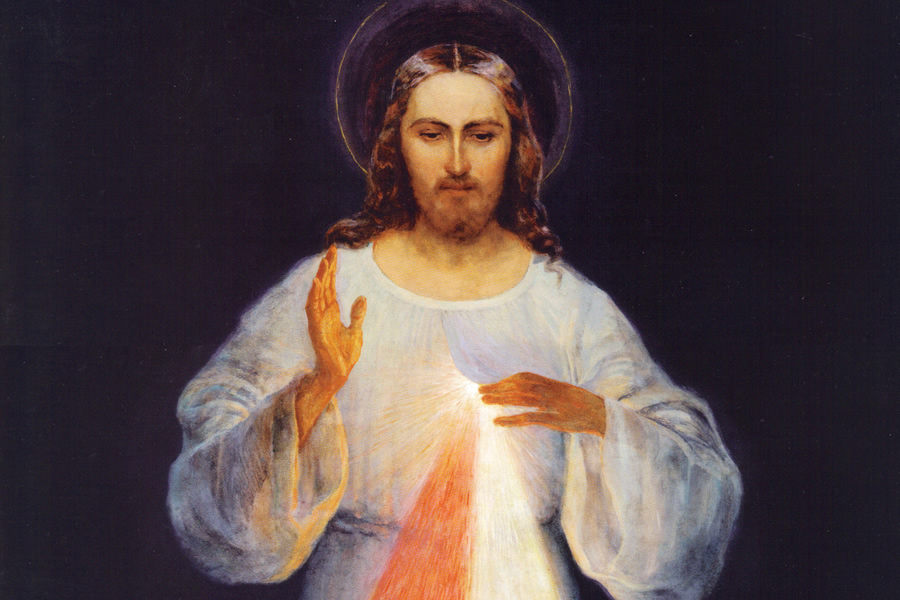
Receive the Holy Spirit. Whose sins you forgive are forgiven them.
04-07-2024Weekly ReflectionFr. Manasseh Iorchir, VCOn April 30, 2000, the First Sunday following Easter and the Sunday that completed the Octave of Easter, Pope John Paul II both canonized Sister Faustina Kowalska (a Polish nun who saw visions of Christ in which Our Lord asked her to be an Apostle of Divine Mercy) and declared in his Homily of that day his own desire that the “Second Sunday of Easter…. From now on throughout the world will be called ‘Divine Mercy Sunday.’” Following these holy wishes of the Holy Father, on May 5, 2000, the Congregation for Divine Worship and the Discipline of the Sacraments issued a decree officially establishing the Second Sunday of Easter as “Divine Mercy Sunday.”
On this day, the Church hopes that all of us as continuous beneficiaries of God’s mercy will contemplate the immensity of God’s greatest attribute and having experienced the mercy of God ourselves, will endeavor to extend mercy to others through our words, actions and prayerful thoughts towards them. The feast of Divine Mercy is not only a beautiful reminder of the love of God, but also a challenge to a deeper understanding of who He is, and who we are in relation to Him. The fullest expression of this Mercy of God is the sacrifice of Christ on the altar of the cross, offered for the restoration to righteousness of all people provided they look towards Him with faith (John 3:14).
In the Gospel passage for this Sunday, St. John gives us a beautiful account of one of the appearances of Jesus to His Disciples after His Resurrection. While they were hiding in a room for fear of the Jews, Jesus appeared to them and His first words to them were “peace be with you.” Then He breathed the Holy Spirit upon them, recreating them like God did in the creation of man (Genesis 2:7) and empowering them with God’s Spirit, and told them “receive the Holy Spirit. Whose sins you forgive are forgiven them, and whose sins you retain are retained.” By doing so, Christ graciously empowered His Apostles who were mere mortals a privileged participation in the administration of Divine Mercy. By the merits of Christ and by this mandate, the Apostles were adequately equipped with the authority to forgive sins in the name of Christ the fullest expression of Divine Mercy. This is the basis of the Sacrament of Reconciliation, the administration of which every Catholic priest who is granted the relevant faculty is privileged to participate in.
Jesus also showed mercy to Thomas who, though an Apostle, was not with the Apostles when Jesus first appeared to them and so doubted the fact of the Resurrection demanding a personal verification of the claims of those who saw Him before he would believe. Thomas’ absence at the first appearance of Jesus and the resultant skepticism reminds us of what can happen to us when we are part of the church by virtue of baptism but not with the Church in terms of what we believe and practice: we miss out on important aspects of faith and life and doubt tends to creep into our lives. Jesus literally gave him a second chance with this appearance which yielded unexpected fruits: Thomas made a profound profession of faith in the Lord Jesus by declaring “My Lord and my God.” When we realize how much God loves us by giving us chance upon chance to be better children of His through His mercy, the natural response is usually a reawakening of a deep form of faith that we never thought was possible with us.
May God continue to show us mercy and may we in turn extend His mercy to others in our thoughts, words, actions and prayer even for those who may be undeserving of it. Please be kind and may God bless you.
Happy Easter!
Fr. Manasseh
BACK TO LIST